How to propagate chestnuts?
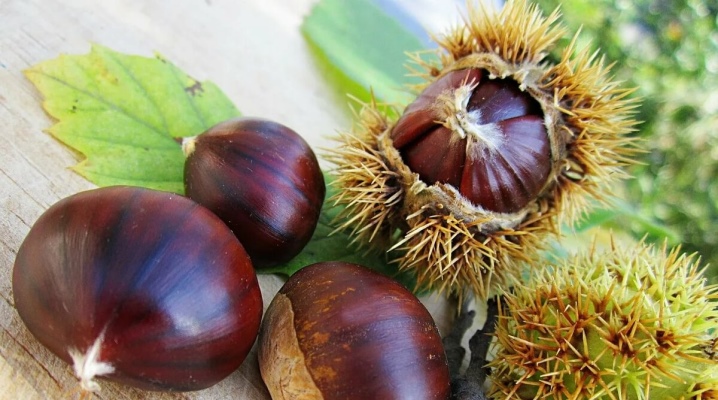
Chestnut is a deciduous tree with a dense and spreading crown. Its peculiarity is a unique root system, which is characterized by sensitivity to soil compaction. That is why chestnuts are usually planted in places where sunlight is abundant. At the same time, these plants do an excellent job with sudden changes in temperature.
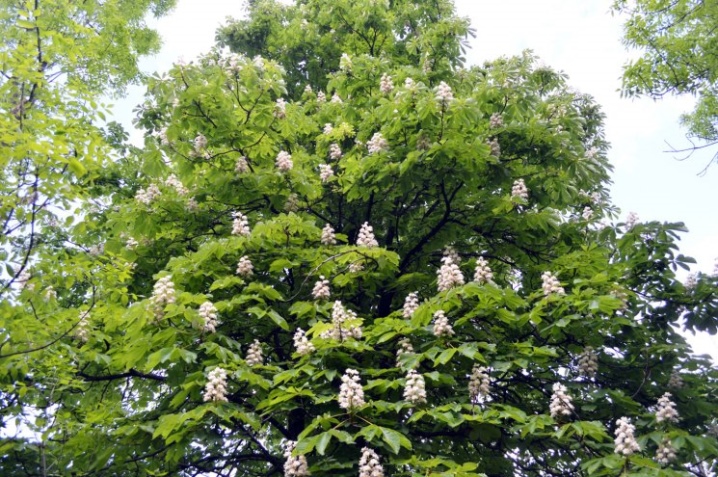
Breeding features
The most popular breeding method for chestnuts is through the use of seeds. Less popular are the planting of root suckers and rooting of cuttings.
Despite its southern origin, this tree is resistant to cold weather, and also grows rapidly. If conditions are favorable, the chestnut can last up to 300 years. Most pests bypass him, which also has a beneficial effect on him. The main advantage of the chestnut is that it does not need to be planted and propagated at all.
However, it is necessary to strictly adhere to the basic rules.
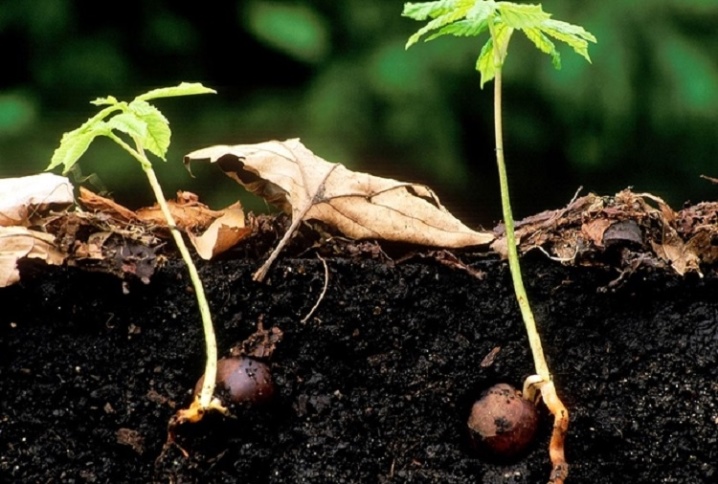
How to grow a tree from a fruit?
Chestnut seeds or fruits that ripen in the first decade of autumn can be excellent sowing material if properly planted in the ground. Not only the plant itself, but also its fruits are not capricious and can grow in almost any soil.
The ideal solution for this case will be leached loamy chernozem soils. Planting can be done both in spring and autumn. If this is done in the fall, then you need to collect the fruits that have fallen from the tree, put them in a box and cover everything with sand. After that, the box is sent to a dark and cool place. A basement or refrigerator would be an excellent option. It should be noted that fruit hardening is an important point, therefore, it needs to be given close attention.
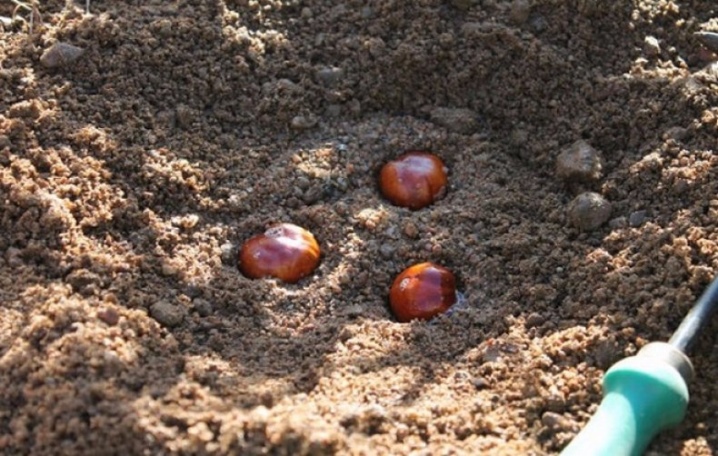
When planting fruits, you also need to follow certain rules. They must be planted up to 6 cm deep, and the distance between them should be no more than 12-14 cm. After that, they are slightly sprinkled with soil, and then covered with dry grass or foliage. The presence of such a pillow will provide reliable protection in the winter season, when there are severe frosts outside.
If planting is carried out in the spring, then the fruits must be prepared for wintering. In order for the seedlings to be good and healthy at the output, close attention should be paid to the storage of the seeds. It is best to store them all winter in a cellar, and a few days before disembarkation, they can be placed in slightly warm water. Thanks to this, the embryo will be able to form and quickly recover to be ready for planting. As for soil preparation, it is no different from planting in the fall.
.
The most popular planting is in the spring, as it is safer. In winter, fruits are often damaged by frost or pests.
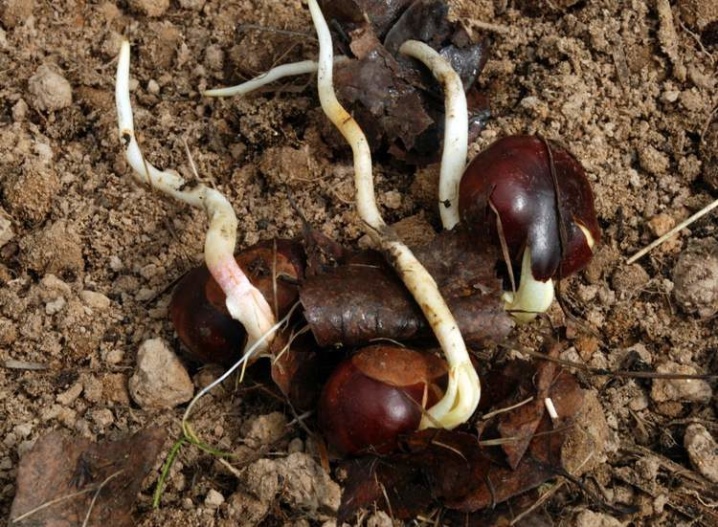
Growing from cuttings
One of the features of the chestnut is that it reproduces well in a vegetative way - by cuttings. This method is one of the most effective and that is why it is in great demand. Cutting allows for rapid engraftment, and also greatly simplifies the reproduction technique. That is why even a beginner can cope with such a task.
The soil for cuttings should be prepared at the beginning of autumn, but it is best to plant it in the spring. Primary soil preparation procedures are no different from those described above.Differences may relate to care and storage procedures. So, for cuttings, the technology of pruning and processing with a growth stimulator is important, but only the lower part, which will be in the ground.
The area where the cutting will be planted should be loosened as much as possible and cleaned of weeds, so that everything will quickly take root and begin to grow. Close attention should be paid to the planting technique. The distance should be at least six meters, as trees will grow in the future - they need a place to develop.
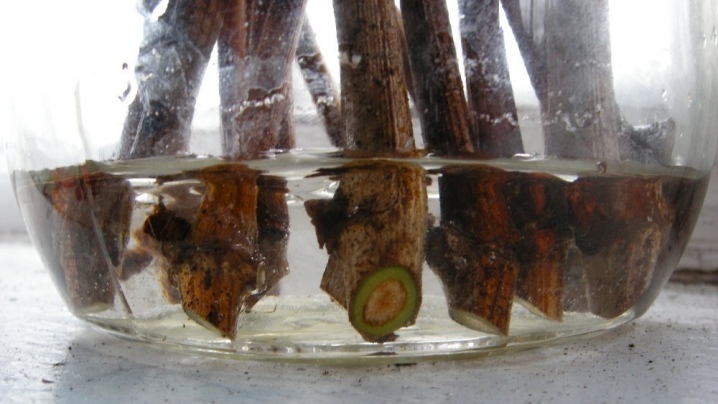
The correct neighborhood is also essential for chestnuts. There is no need to grow any plants, flowers or anything else near them, as they will not be able to develop in the shade.
After planting, taking care of the chestnut cuttings will not be difficult. In the summer, you should water more often so that the soil does not dry out much, and at first you need to feed it once a week, and then only once a month.
Thus, the breeding and growing process of chestnuts is quite simple.
Attention should only be paid to preparing the soil and fruits, and then the tree will grow almost independently.
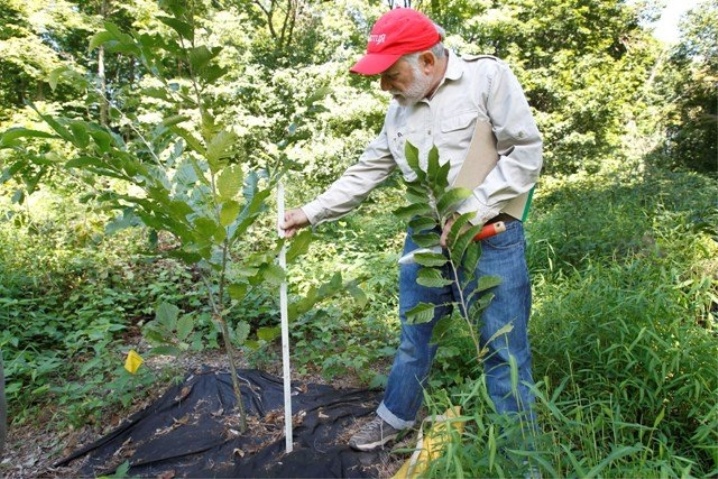
How to grow chestnuts, see below.



































































The comment was sent successfully.